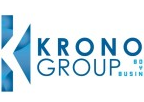Predictive procurement services and what it can do for you.
To a procurement professional, the concept of predictive procurement is a familiar one.
Procurement teams must be prepared to stay ahead of the market. As we face a volatile business landscape with global implications, procurement teams must act fast in order to secure suppliers and prices that are beneficial in the event that more unpredictable disruptions occur and result in an immediate surge in demand.
The concept of predictive procurement — commonly considered to be the future of procurement — aims to distance the function from its traditional role of being a reactive function and move towards a predictive function, largely through the support of AI-powered analytics.
Aside from creating measurable improvements in procurement services, predictive procurement is also expected to trigger a domino effect with the level of potential influence it will have on a host of other functions like budget planning, the flexibility of resources, and identifying potential opportunities to name a few.
Reactive vs. proactive
In the not-so-distant past, reacting to a crisis was an expected — and in some cases acceptable — mechanism for procurement teams to function. It has become increasingly apparent, however, that the ability to strategise for the future is taking centre stage.
Predictive procurement analytics are giving organisations insight into their supply chains and how the choices they make could impact them in the future. This means that businesses have the ability to simplify their decision-making processes and make more effective decisions faster.
Value generation
Using predictive analytics, procurement functions can derive insights from internal systems and also access real-time data on external market drivers and economic fluctuations that impact businesses.
With these internal and external insights, businesses become more capable of creating partnerships with many stakeholders who share the same objective of analysing different sources of data.
Standardisation of data
Sourcing data that has been deployed in recent years typically does not present challenges, however, the problem arises when the data needs to be processed.
Processing a massive amount of data in a meaningful manner is not practical with the current systems in place. Advanced technology like machine learning and AI is required to ensure that the data is available in a standardised format that can be updated in real-time.
Adopting predictive analytics and predictive procurement solutions can help identify inconsistencies easily and provide you with a clear path to strategising your procurement outlook.
Improvement of supplier performance evaluation
Having an in-depth overview of your suppliers and their information — including pricing and past performances — is another benefit of predictive procurement services.
Adopt mechanisms with a data-driven approach that will guide you to award supplier contracts. Supplier contracts that are awarded based on data-driven decisions will ensure that you make the right decisions without bias.
Businesses can also enjoy more profitable and rewarding relationships with top suppliers rather than opting for suppliers simply based on low prices and existing relationships.
Streamlining compliance procedures of procurement services
There are many procurement services that can be streamlined in the function, including requisitioning products and invoicing.
Automating these processes can give businesses an edge when it comes to tracking compliance across all suppliers. For instance, if you require information about an existing deal with a supplier or need to track any discrepancies in a purchase order, these mechanisms can help you access the information you need instantly.
When your compliance procedures are aligned you have complete control and transparency over the procurement function.
Use predictive procurement to elevate your business
There are many disruptions that can derail an organisation’s ability to maintain a consistent supply chain. While there are elements that can be predicted, incidents such as factory fires or natural disasters cannot be predicted unless your geographical region has a history of similar disruptions.
Predictive procurement will help you analyse past events and construct an understanding of what disruptions you can expect and how you can better prepare your business to face, and thrive in, these adversities.
There are countless instances where predictive procurement has helped organisations predict market changes and develop strategies to counteract their effects.
Businesses looking to revamp their procurement processes and unlock the power of a strategic procurement function should leverage procurement consulting for advanced procurement tools and insights to take the function to the next level.
